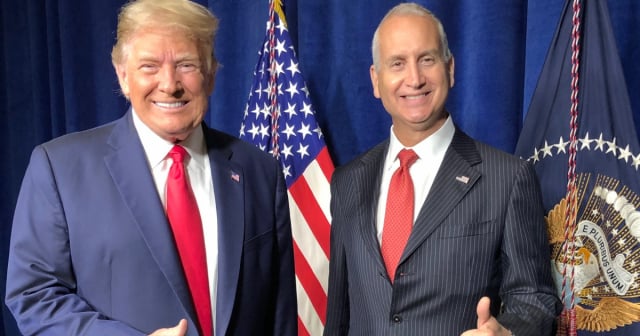Cuban leader Miguel Díaz-Canel has once again proven that he lives in a parallel universe to the people of Cuba. In a YouTube podcast, which attracted a dismal audience (only accumulating 32 likes and 300 views in three hours), Raul Castro's successor claimed that the country "has continued to advance and grow."
He has stated this in what seems to be a sober state after briefly listing the effects of the terrible economic crisis that Cubans are experiencing, which is evidenced, for instance, by the three total blackouts the country has endured since October to this date (October 18, November 17, and this Wednesday, December 4).
"Nobody overlooks or underestimates the weight of the current needs of our economy, the frustration caused by power outages; the lack of medications, and all the issues related to transportation, water, and cooking fuel, as well as the sometimes poor quality of various services," acknowledged Díaz-Canel, without providing solutions to these chronic problems that have persisted for 65 years under the Communist Party’s rule in Cuba, nor did he set a deadline to find a way out of this extreme situation.
Lo único que aportó a modo de "salida" fue un rosario de consignas. "Contra todo, batallamos enfrentando una guerra económica despiadada que en 65 años no ha renunciado al plan de rendirnos por hambre, necesidades y dificultades infinitas que nos van poniendo al paso de nuestro camino", dijo a modo de sermón.
In other words, in the face of difficulties, the enemy remains external and the solution lies in party propaganda. However, in this podcast, Díaz-Canel himself finally acknowledges that there are problems that can be resolved "that have nothing to do with the blockade." He mentioned it casually, but did not elaborate on this idea or emphasize it.
"I am convinced, as confirmed by the visits we make to the provinces, that only through unity, in those smaller structures closely tied to daily life—such as neighborhoods and municipalities—is it possible to address and confront many problems that are unrelated to the blockade and its effects on the harsh everyday existence of the Cuban family," he stated.
Díaz-Canel made these statements during a program shared with the provincial director of Education of Artemisa, Yarobis Álvarez; the president of the Municipal Assembly of Bejucal, Ana María Gallardo Caso; and Pedro Lizardo Garcés Escalona, president of the Rampa People's Council. These Communist leaders shared their experiences with the president regarding the recovery of areas affected by power outages and a couple of cyclones.
While Díaz-Canel is demanding sacrifices from the people, his stepson Manuel Anido is living a life of luxury in Madrid alongside the Cuban actress Ana de Armas. His granddaughters were born in a hospital whose name has been obscured to prevent identification, lest the average Cuban, the one who has to endure, realizes that the family of Raúl Castro's successor lives in a different Cuba.
Filed under:
